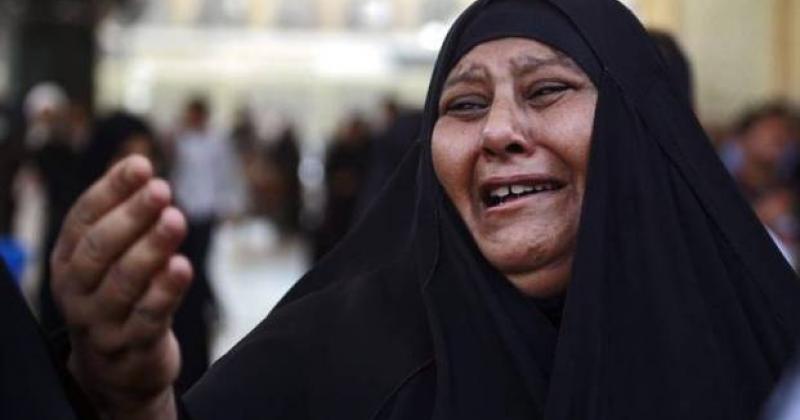In the Pope’s eyes, “the conscience of man” is one of the main casualties in the crisis in the Middle East. The international community has not managed to come up with adequate solution.
The crisis in Iraq and Syria is “one of the most overwhelming human tragedies of recent decades”. This has created an “ocean of pain” that hit the poor, women, children and the elderly the hardest. “In Syria and Iraq evil destroys buildings and infrastructures, but especially the conscience of man.” These were the pope’s words during this morning’s audience with participants of the symposium organised by the Pontifical Council "Cor Unum" on the humanitarian crisis in Syria and Iraq. This is the first time representatives of UN agencies are taking part in a meeting to try to coordinate aid to be delivered to the areas ravaged by conflict. This is why, Stephen O’Brien, Under-Secretary-General for Humanitarian Affairs and Emergency Relief, was also present. He introduced today’s meeting together with the secretary of Cor Unum, Mgr. Giampietro Dal Toso and Cardinal Leonardo Sandri, Prefect for the Congregation for the Oriental Churches. During the meeting, a special focus was given to the situation of Christian communities in the region.
The Pope spoke about the “terrible consequences that the conflicts in Syria and Iraq have on civilian populations as well as on cultural heritage”. “Millions of people,” he added, “are in distressing state of urgent need. They are forced to leave their native lands. Lebanon, Jordan and Turkey today carry the weight of millions of refugees, which they have generously received.” “Faced with such a situation and conflicts that are expanding and disturbing in an alarming way the internal and regional equilibrium, the international community seems unable to find adequate solutions while the arms dealers continue to achieve their interests. With arms that are covered in the blood of innocent people.”
The Pope then recalled that this state of affairs is even more serious if one considers that the media today are able to provide live coverage of the “atrocities and unspeakable human rights violations, which characterize these conflicts, are transmitted live by the media. Therefore, they captured the attention of the whole world. No one can pretend not to know! Everyone is aware that this war weighs in an increasingly unbearable way on the shoulders of the poor. We need to find a solution, which is never a violent one, because violence only creates new wounds.”
Francis urged Catholic charities “to give special attention to the material and spiritual needs of the weakest and most defenceless” “in this ocean of pain”. “I think particularly of the families, the elderly, the sick and the children. Children and young people, the hope of the future, are deprived of basic rights: to grow up in the serenity of the family, to be looked after and cared for, to play and study. With the continuation of the conflict, millions of children are deprived of the right to education and, consequently, they see the horizon of their future becoming obscured. Do not miss your commitment in this vital area. The Pope then turned his thoughts to the fate of Christian communities in Syria and Iraq, “where many brothers and sisters are oppressed because of their faith, driven from their land, kept in prison or even killed”. “For centuries,” the Pope underlined, “the Christian and Muslim communities have lived together in these lands on the basis of mutual respect. Today the very legitimacy of the presence of Christians and other religious minorities is denied in the name of a “violent fundamentalism claiming to be based on religion.” He said, quoting Benedict XVI’s Apostolic Exhortation on the Middle East.
Cor Unum itself published some data, illustrating the dramatic humanitarian situation in Syria and Iraq. “Since 2011, according to available data, the crisis has claimed more than 250,000 victims and has caused a million injuries. There are currently more than 12 million people in need of aid in Syria and more than eight million in Iraq; there are 7.6 million internally displaced people in Syria and more than three million in Iraq, and four million Syrian refugees throughout the Middle East: in particular, there are 1.9 in Turkey, 1.1 in Lebanon, and more than 600,000 in Jordan.”
Finally, speaking to Vatican newspaper L’Osservatore Romano, the Secretary of the Pontifical Council Cor Unum, explained certain aspects of the discussion taking place in the Vatican: “It is important to reiterate that the Church helps everyone without distinction. The over 10,000 church workers who are active in this field (professionals and volunteers), carry out their mission, guaranteeing material and spiritual assistance to everyone, Christians and non-Christians alike, Muslims especially.” “On the other hand,” he added, “it is clear that the Church is greatly concerned about the fates of Christian communities in the Middle East and about the fact that they are fleeing their homes and lands which are historically and spiritually the cradle of Christianity”. “Setting religious beliefs and ideological prejudices aside, we must ask ourselves,” Mgr. Dal Toso said, what would the Middle East be without Christians? In the not too distant future, their escape will pose a problem to society as a whole, even those who belong to different religious faiths, given the historic role of these communities”.
